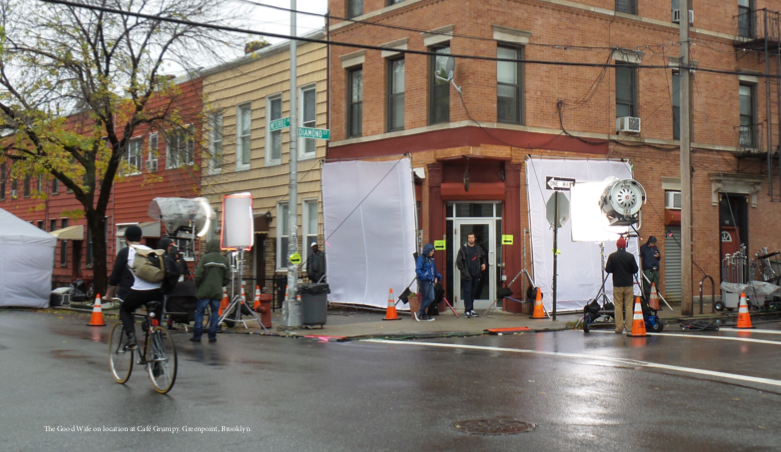Industry Jobs | Location Manager
/As one of the premier studio production companies in New York, Broadway Stages works to meet the growing needs of the film and TV industry while also focusing on the needs of our community. We provide the industry with a soundstage or location where they shoot their scenes, but they also need a skilled and experienced workforce. In this series, we look at the various jobs that make a production come to life. We hope it provides insight and encourages you to consider a career in the film and TV industry. This week, we look at the role of a location manager.
What is a Location Manager?
In our last Industry Jobs post, we looked at the role of the first assistant director (1st AD), which is integral to a film’s planning, scheduling, and management activities. This week, we look at a role that is key to a production’s planning and scheduling when the decision is made to film on-location versus in a studio – the location manager. This leadership role is involved in the pre-production stage to ensure the right locations are identified and secured, and during the production stage to ensure that various location-related needs are met. Let’s look at an overview of the location manager’s responsibilities.
What Does a Location Manager Do?
The location manager heads the location department, which has roles such as assistant location manager, location scout, and location assistant. In the pre-production stage, the location manager works with the production designer and director to address both creative and practical considerations. They determine location needs based on the script, considering the director’s creative requirements. They also consider logistical requirements to accommodate needed crew members and equipment. Typically, several visits are made to a location to evaluate it, first by the location scout and then by others. The location manager works with the production designer and director to come to a final location decision. MasterClass provides an overview of the location manager’s responsibilities at this stage, including some of the aspects to consider for a location, like infrastructure-related needs (e.g., electricity and plumbing); space needs (e.g., for trailers and parking); access to medical facilities; and noise concerns. The location manager will negotiate fees with property owners; get needed permits and insurance; make sure health and safety requirements are met; and communicate with the neighbors to let them know when filming will take place. Finally, the location manager will ensure the set is equipped to meet the crew’s needs, such as providing a power supply and services such as security and a cleaning crew.
“The good wife” on location at café grumpy, greenpoint, brooklyn.
MasterClass explains that during the production stage, the location manager will work with the assistant director to “map out the crew’s arrival times, distribute maps, and generally ensure that all crew members know where they are supposed to be at all times.” They will also trouble-shoot any problems; prepare the location that will be used the next day; interact with the public; and once filming is over, return the location to its original condition (see this Careers In Film interview in which Location Manager Alex Banderas explains the role the location manager plays in making sure the location is left in the same condition in which it was found.) See this Film Independent video for an overview of the location manager role.
How do I become a Location Manager?
There is no formal education required for this job, however a background in other fields can be helpful. In this Career Sighted video, Location Scout & Location Manager Dale Dreher says, “You can take almost any degree and transfer it into locations work. At least take one or two classes in architecture, photography, sales, negotiation, deal making. If you could learn a little bit about landscaping, that would be helpful.” As with other on-set leadership roles, on-the-job experience is the best way for one to work up to this role. Dreher recommends that a way to get into the locations department is to get work as a production assistant (PA) on set in any department, then network and make connections.
A location manager should have strong organization skills, with the ability to delegate to team members; and strong communication skills, with the ability to interact well with others. In addition, this Backstage article recommends that “a good eye for design and strong attention to detail are definitely useful, as is strong knowledge of unique geographical locations.”
Read more about the location manager role and the skills and experience needed at ScreenSkills and Media Match. Learn about film and TV industry jobs, training, and more in the Broadway Stages’ Industry Resource Guide. Our guide provides information about industry-focused job posting sites; links to general recruiting sites; education and training programs; and state, city, and borough industry information.





